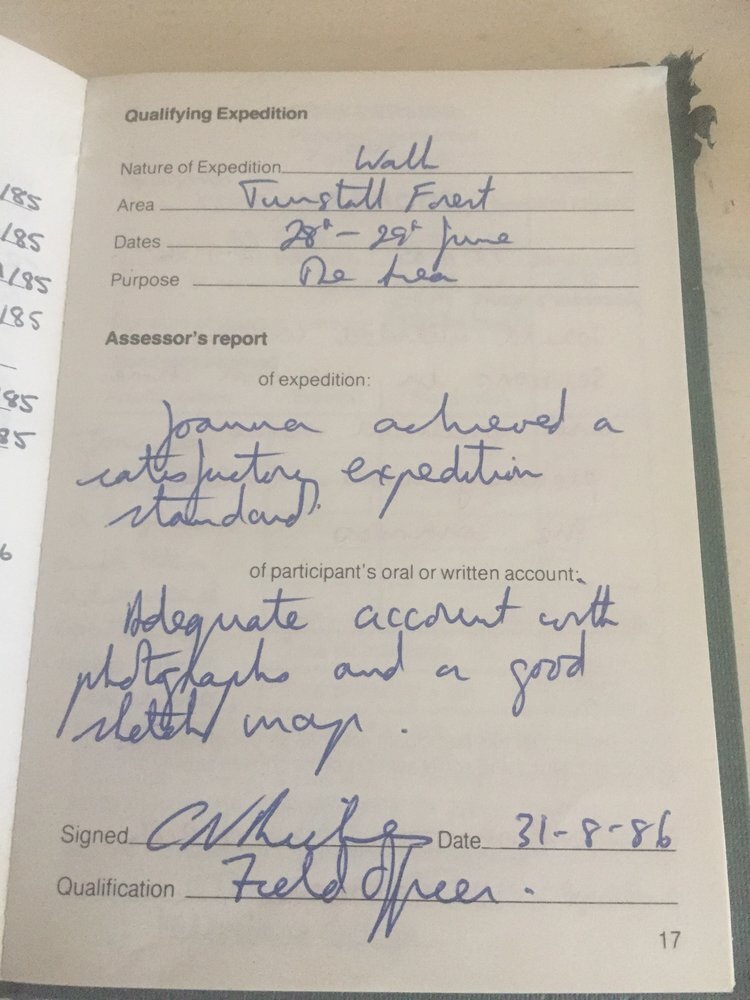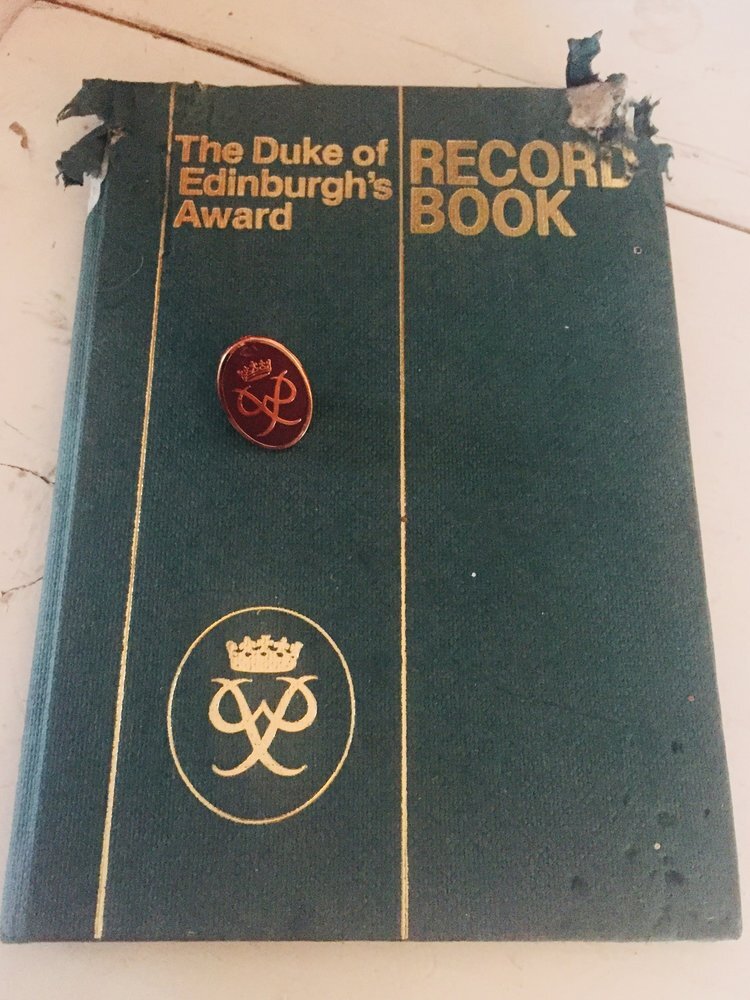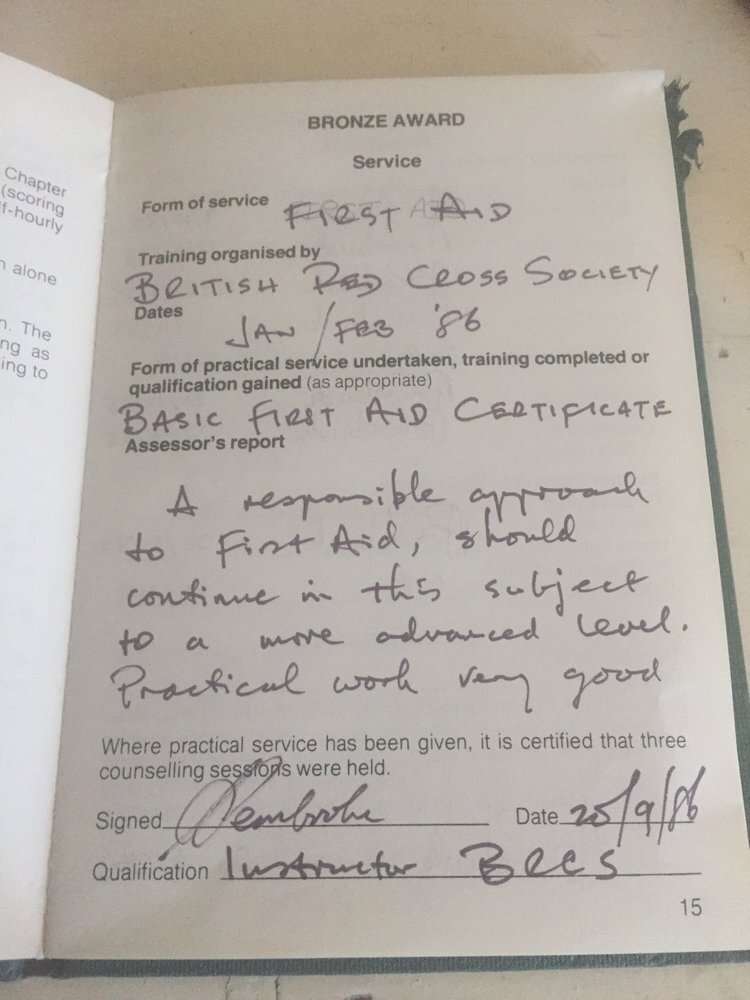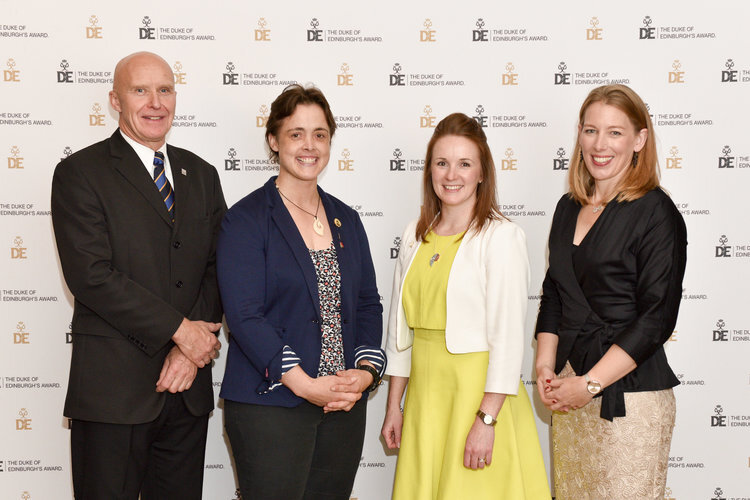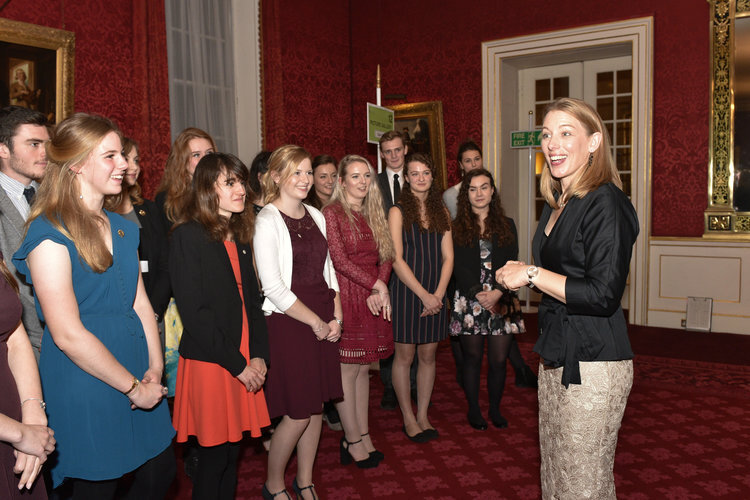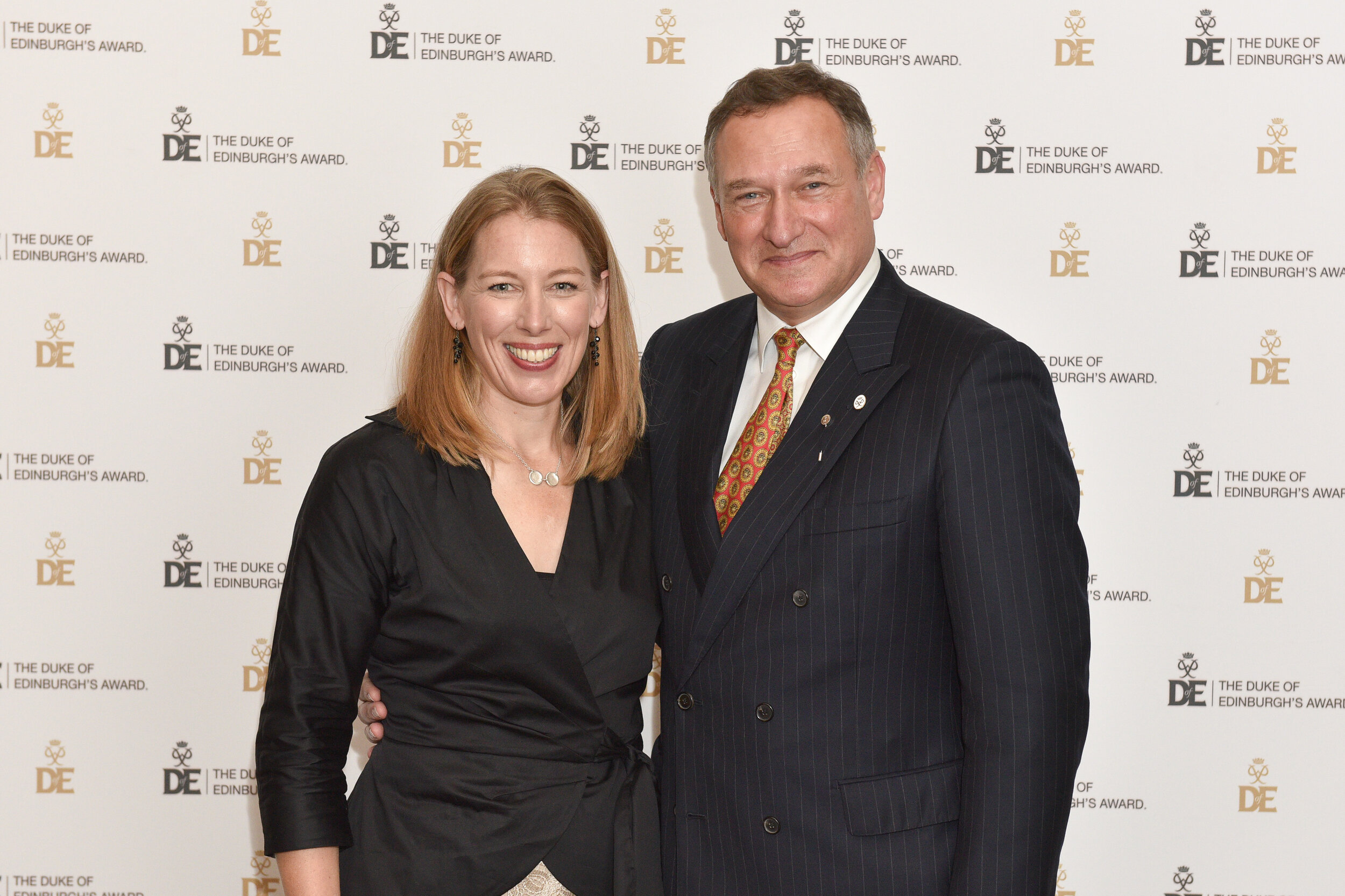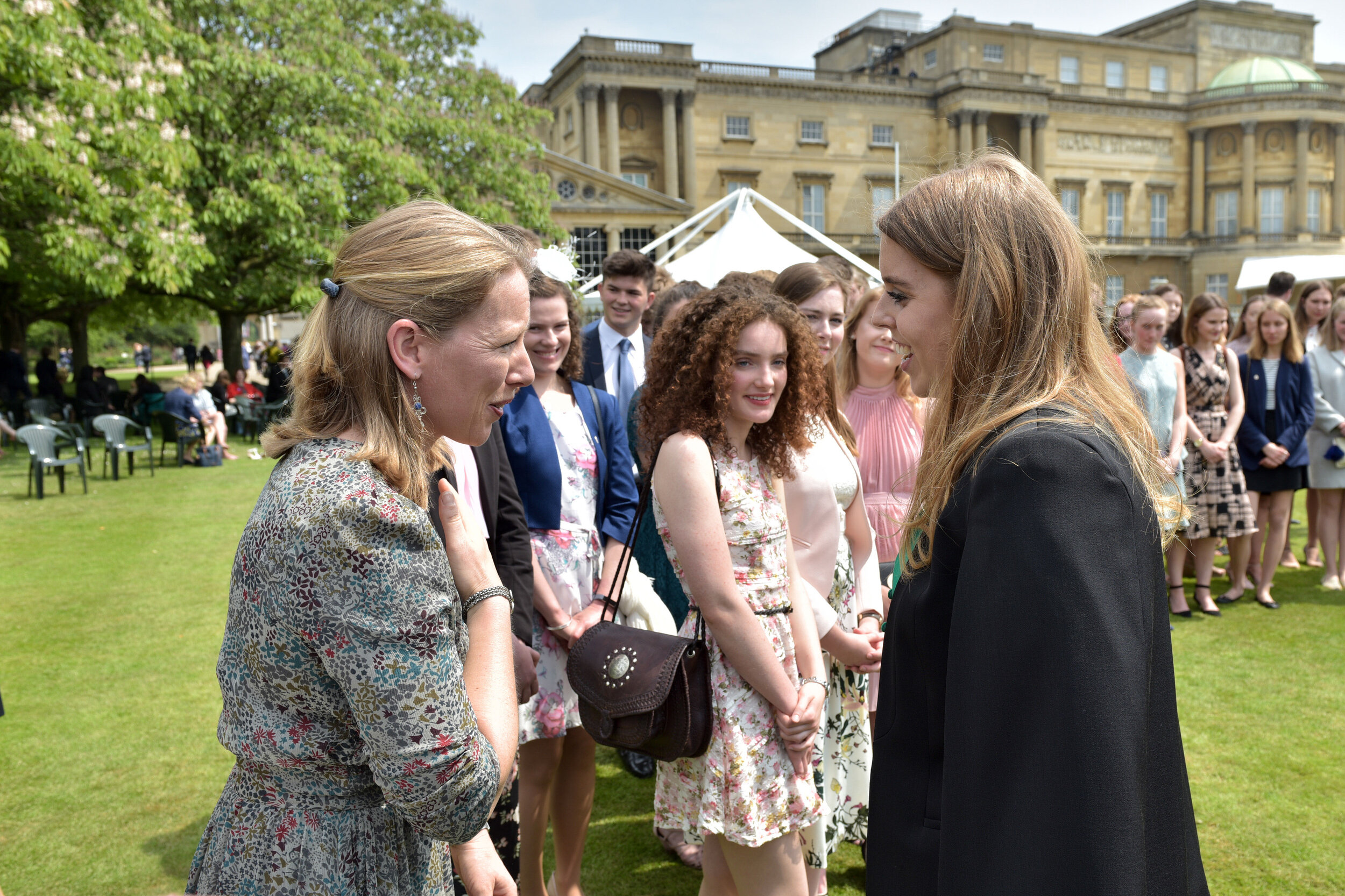Going for Bronze, Silver and Gold - the update
On Friday 9th April HRH Prince Philip, The Duke of Edinburgh passed away at the grand age of 99.9 years. I was driving to a local store when Vanessa Feltz suddenly went quiet and the news was broadcast of his passing. It was a very sad moment. What an incredible man he was and what an incredible legacy he has left in so many ways, not least with The Duke of Edinburgh’s Award which I have been proudly involved with for many years in the Outdoor Instructor part of my working life, teaching and assessing the expedition element of all levels of the award, and I love it.
In April 2018 I originally wrote the blog below and it seems fitting to give it a refresh and to post it again.
Rest in Peace Sir.
The Gold Award presentations at St James’s Palace, November 2016. Part of our conversation went like this:
Introduction to HRH - “Sir, Jo Bradshaw has climbed Kilimanjaro over 23 times”
HRH - “Why on earth would you want to do that”
Me - “That’s exactly what my Father says Sir” Oh how we all laughed!
I had the absolute honour of meeting Prince Philip twice at St James’s Palace and he had the extraordinary skill of making you feel so at ease with his quick wit. He will be sorely missed by so many.
In April 2018 my Mum found my DofE book from 1986. I remember parts of my Bronze Award, from the cooking to volunteering in a home for the elderly to the first aid, and I definitely remember the monster-sized blisters on my heels at the end of a very hot 2-day qualifying expedition. I got a satisfactory for that expedition so I clearly had some work to do. Little did I know then what I would be doing now.
Roll on 35 years and I am now not only instructing and assessing DofE participants from the start of their DofE journey at Bronze through to their finish at Gold but also very proudly representing the DofE by presenting certificates to Gold Award holders at Buckingham and St James’s Palace. Who’d have thought this satisfactory girl would kick her inner lazy into touch and go on to climb some pretty large mountains and hopefully inspiring some of our next generation of adventurers.
DofE Gold Awards presentation at St. James’s Palace. December 2018
History - taken for dofe.org
“HRH The Duke of Edinburgh first considered the idea of a national programme to support young people’s development in the autumn of 1954 at the request of his inspiring former headmaster, Kurt Hahn.
In the post-war era, His Royal Highness wanted to bridge the gap between leaving formal education at 15 and entering into National Service at 18, so that young men made the best use of their free time, found interests and acquired self-confidence and a sense of purpose that would support them into their future and help them to become well-rounded citizens.
Following discussions with the Minister of Education in 1955, The Duke of Edinburgh consulted a number of national voluntary youth organisations with a ‘boy’ membership with a view to starting a pilot.
Led by Sir John Hunt (later Lord Hunt), who provided the necessary administration and co-ordination amongst the partner organisations as the first Director, a pilot for The Duke of Edinburgh’s Award was launched in February 1956. The programme had four sections; Rescue and Public Service, Expeditions, Pursuits and Projects, and fitness, which would holistically support, guide and upskill young men as The Duke envisaged.
Initially the pilot just involved national voluntary youth organisations and many attended a planning conference at Ashridge College in Hertfordshire in March, 1956. However, the pilot was quickly extended to include Local Education Authorities, the Navy, Army and Royal Air Force, and a handful of independent and grammar schools across the UK. After the first year, 7,000 boys had started a DofE programme and 1,000 Awards had been achieved.
In fact, the pilot proved such a success that, by the second year, other small scale pilots overseas and a programme for girls had also been set up. Furthermore, the number of organisations and young people taking part had more than doubled.
The DofE continued to evolve over subsequent decades and in 1980 the age limit was extended so that any young person aged 14 to 24 could take part. At this time, DofE programmes took on their current four section format of: Volunteering, Physical, Skills and Expedition, with an additional Residential section at Gold level.
Popularity continues to grow, with over 130 countries and territories now offering DofE programmes as part of The Duke of Edinburgh’s International Award Foundation. In the UK in 2019/20, 295,490 young people started a DofE programme and a record 159,051 Awards were achieved through schools, colleges, universities, youth clubs, businesses, housing associations, young offender institutions, voluntary organisations and more.”
I was fortunate enough to be invited to the Diamond Anniversary Service of Thanksgiving at Westminster Abbey in November 2016 and listened to not only The Earl of Wessex give a heartfelt speech about his Father’s work but also heard from DofE Award holders of how the DofE programme has had such a positive impact on their lives. One speaker had been a young offender and has since gone on the straight and narrow thanks, in part, to the structure and learning opportunities given by the DofE and those involved.
When I was invited to present for the first time at St James’s Palace in November 2015, my now dearly departed Father jokingly (in part I’m sure) asked me to give his regards to the Duke and say ‘you’ve done a grand job Sir’. I obviously didn’t but I totally understood my Father’s sentiments.
Since its creation in 1956 over 3.1 million students in the UK between the ages of 14 and 24 have been presented with their DofE Award from over 6.7 million starters including nearly 2 million Bronze, 660,000 + Silver and 280,000 Gold Award holders. From the students who start their DofE journey, 4.5% are presented with their Gold Award.
Like myself in 1986, many students start their bronze award with trepidation and go on to receiving their award after a year of hard work, probably coming out of it with more confidence that when they started. Many, again like myself, will stop there for a variety of reasons but those who go on through Silver and then onto Gold have more hard work and larger rewards in store. I liken the award structure to that of school exam levels. The Bronze being GCSEs, Silver being A-Levels and Gold being degree standard.
The Gold Award is challenging for a good reason. Most students will go through their Gold during their A level years, so time is at a premium and the pressure is on. It takes dedication and commitment to work towards this award through the five elements which include a 4-day self supported expedition, 5-day residential, 12-month volunteering, and physical and skills elements which are 12 and 6 months long and on average for a day a week.
So why do students put themselves through this during their hardest school years? Because they want to be part of that 4.5% and to have something truly amazing on their CV and to have something truly amazing in their lives. A Gold Award holds gravitas. Both universities and employers take into account the hard work and commitment that doing a DofE programme takes to complete and the students really understand the dedication that they need to put in to be part of that small percentage.
When I attempted Everest in 2015 I didn’t want the climb to be just about one mountain and me, but to be about others too and I was keen to be able to give a great opportunity to share Nepal and our acclimatisation with a group of six Gold DofE participants as their Residential part of the award.
Each student sent in a letter to me explaining why they felt they would benefit to be part of my team, along with references and an explanation of how they were going to raise half of the expedition funds (the other half was sponsored) and the small amount of fundraising for children’s mental health charity Place2Be. Amongst a great team of friends and clients, my students trekked to Everest Base Camp and then as part of a smaller party climbed the 6000m peak Lobuche East and all six students benefited hugely from this experiences in Nepal and whilst completing the Gold Award as a whole.
Unfortunately our Everest 2015 expedition was halted a few days after my clients and students had flown home by the horrors of the 7.8 magnitude earthquake which rocked us on the mountain and thousands in Nepal. I was given the chance to go back in 2016 and took the DofE and many others to the summit with me.
My fabulous DofE Gold team at the Tenzing Norgay memorial, above Namche Bazaar, Nepal. April 2015
If you have a teenager who is looking to do that bit extra or if you have employees who are looking to push themselves that bit further please encourage them to sign up for their Duke of Edinburgh’s Award. From completing my Bronze Award when I was 15 to now seeing it through the eyes of an instructor and assessor for all three award levels as part of my work with ADTREX and The Adventure Element, and for the last six years presenting at the Gold Awards, I can guarantee is it totally worth it.
Many employers love to see the award on a potential employees CV and many a company will run the Gold Award as part of an apprenticeship scheme or for new starters for those up to the age of 24. This great short video shows why it is so important.
This last year has been hugely difficult for the majority and not least the younger generation. Having the DofE as part of a student’s life will bring structure and a goal that is so needed at the moment and I cannot wait to get back to teaching students the intricacies of navigation, the joys of camping and the wonder of the great outdoors. It breeds resilience and independence at a time when it is needed the most, it develops confidence in the most reserved individual and shows that team work really does make the dream work.
Gold Awards presentation at Buckingham Palace, May 2018

